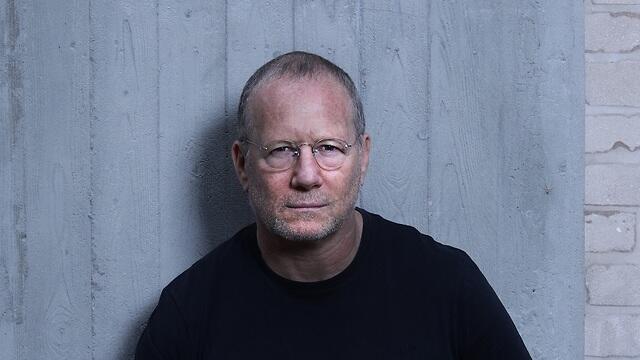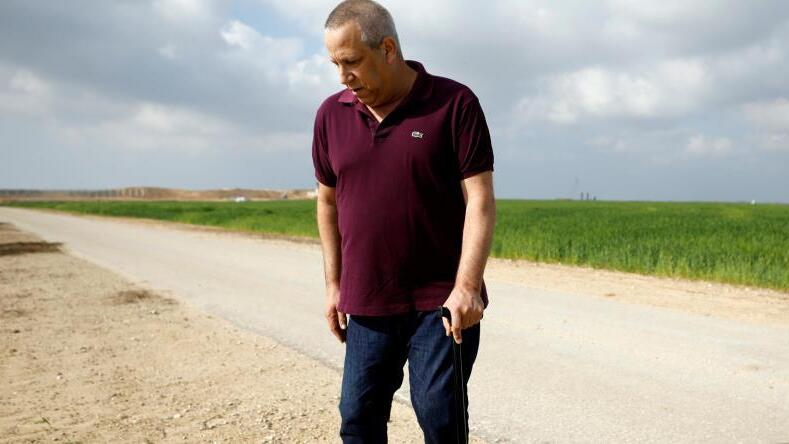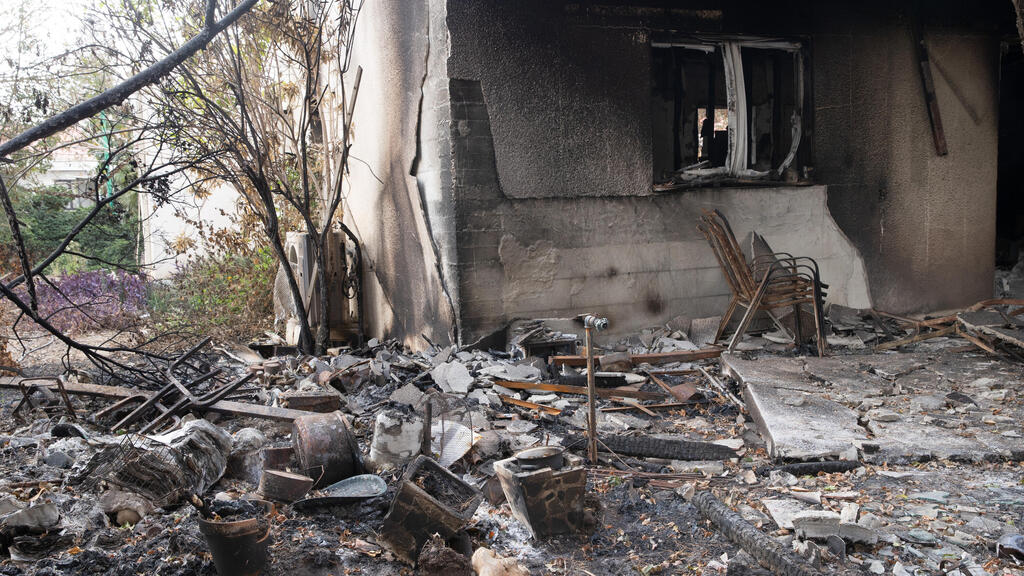Getting your Trinity Audio player ready...
A group of kids ages 9-, 10- and 11-years old sitting together in a kibbutz near the Gaza border should be no different from any other such gathering. Kids are kids, after all. But in this group, there are sounds of chatter, but it is muted. There is no racket, shouting or laughter.
Read more:
As they sit on the grass in Kibbutz Gvulot listening to Gadi Yarkoni, mayor of the Eshkol Regional Council, they are quiet. One boy has his head down, two little girls sit close, holding each other. They seem to be scared to let each other go.
Yarkoni speaks to the children, not the adults that are there too. He is so gentle and sensitive and speaks with such respect to the 250 kids who had just returned to the Gaza border area after long months of living in hotels. They are back to begin the rest of their lives.
"We've all experienced a shattering event on October 7," he says. "Since then there is no joy that does not mix with sadness. There is no way to look forward without looking back at what we had left behind. The biggest and most important thing for us is to care for our hostages – children, adults, our grandmothers and grandfathers – who were abducted from their homes."
Here, near the Gaza border, there is no question about whether or not to use the word "hostages" around such young children. Here the kids know everything. Some have had family members murdered, or held captive in the Hamas tunnels. Most have had experiences that have cut deep into their souls.
"Do you hear the noise at night?" Yarkoni asks them. "Those are soldiers who are fighting day and night. The noise is a good thing and it means we can go on." There is no sound from the kids.
"And the happy part," says Yarkoni, "is that we have all returned home and back to school, which starts here, in tents. And that with the help of people who are making it possible for us to return here as a united group we can once again laugh and love and help each other. We will swim in the pool, play ball, skip rope. We are allowed to laugh, smile and fight because we have won and will win more when we are all back in our communities," he says.
But it is too soon to talk about laughter and there is no certainty about how many of the kids will actually return to school or be counseled by the therapists and counselors who will be present there in the makeshift structures that were hurriedly erected. Everyone understands it is not the government that is providing for them. It is civil society, and in this case an NGO called Zionism 2000 founded by businessman and philanthropist Ronny Douek.
3 View gallery


Zionism 2000 was founded by businessman and philanthropist Ronny Douek
(Photo: Eldad Rafaeli)
The NGO identified immediately after the October 7 massacre that the children's physical and mental health was an urgent, pivotal problem with long-term effects. "If we don't take care of these kids there will be a lost generation here," Douek said at the time.
Within days of the massacre he met with Yarkoni and with Alon Davidi, mayor of Sderot. The NGO invested millions and created infrastructure to provide kids with social centers to replace those they had at home. Mobile structures were brought to provide classrooms and recreation areas for more than 10,000 displaced children from the south, who were housed in hotels near the Dead Sea or in Eilat. Within two weeks the number of children using those facilities doubled and they also provided the non-formal activities in the afternoon and evening hours.
On Tuesday, when the new school was inaugurated, Douek repeated his promise to the kids, their families and everyone there that he and his organization will not leave them as long as they are needed.
So many good people have joined the effort and all are focused on helping these children who have been so traumatized on October 7, when their lives were upended, never to return.
During the event, one boy cried. His father currently is being held captive in Gaza. Yarkoni says his priority is bringing back the children's trust. They have even lost trust in their own parents, who promised them they would be safe. But then they were subjected to the massacre. "We cannot be happy," Yarkoni says. "We don't have the moral right to be."
He hopes that by the start of the new school year in September, the kids will be back in their old school, which is less than 5 kilometers (3 miles) from the border with Gaza. There are 2,500 registered pupils there from elementary school through high school, but 11 of the communities in Yarkoni's council still cannot return because work to rebuild them was not yet done.
"On October 7 I discovered that we are a wonderful people with a terrible government," he says. "there are entire structures that do not know how to do their jobs and do not help us."
He says his council owes 40 million shekels to hotels and private companies and services, money he had to spend because "there was no government."
Education Minister Yoav Kisch, he says, makes promises but none are kept. Even the permission to renovate the school has not been given. He says the government gave him less than a third of the 100 million he had to spend, and his regional council is about to be insolvent.
Driving with Yarkoni in the region proves his point. Nir Oz is a ghost town. What hits you is the silence, the deathly silence. The homes are burned. They look like a scene from a disaster film. It seems that if you just touch them, they will crumble and fall.
Some 80% of Kibbutz Nir Oz's homes have been destroyed. It will take years to rebuild. The kibbutz members moved to Kiryat Gat, a town farther north. "We will be dealing with the threat from Gaza for 100 years more," the kibbutz head of security says. "We just think there will be a political solution but there is none. There is life, reality, not more."
First published: 21:45, 03.13.24




